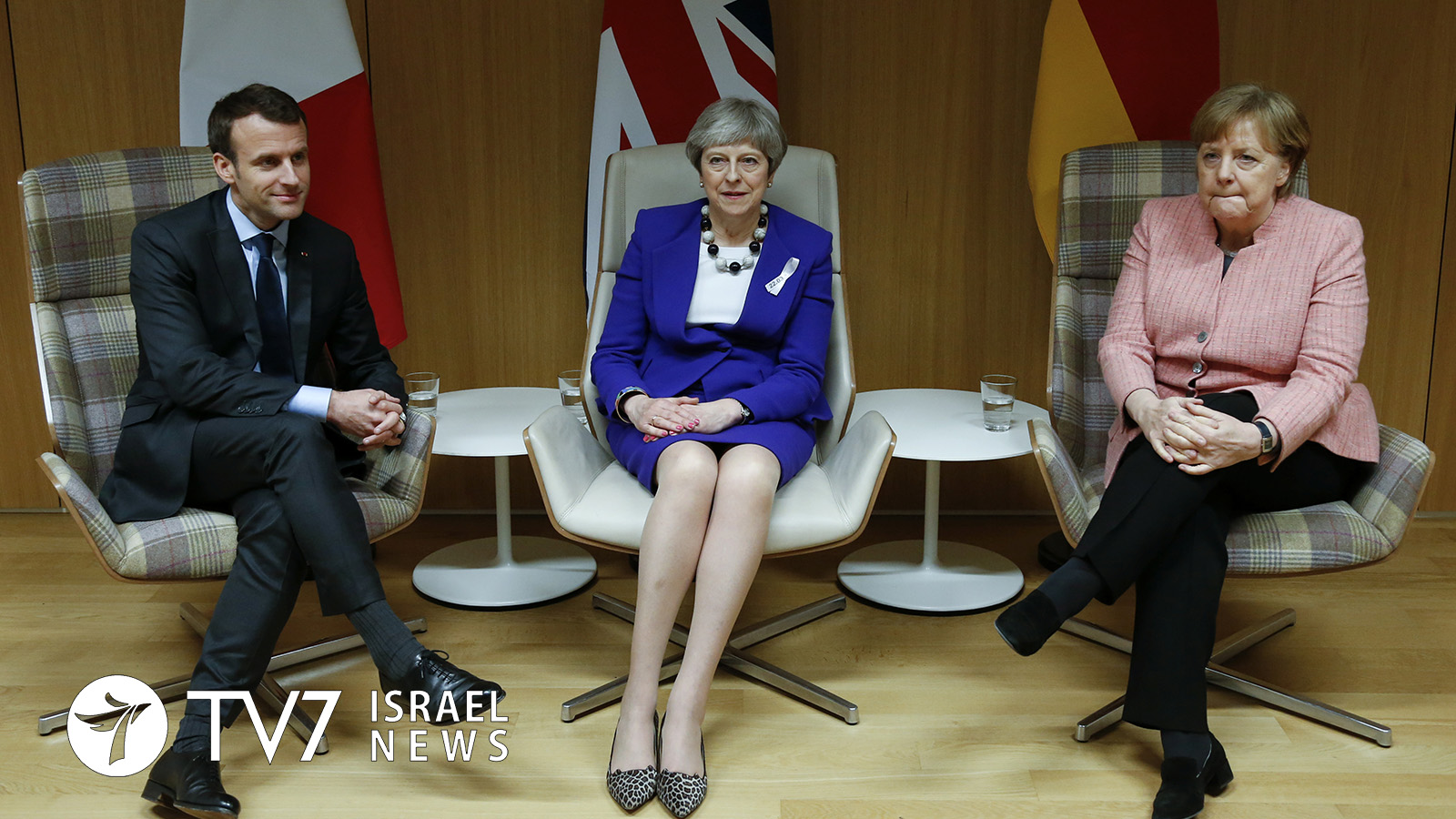The presentation Prime Minister Netanyahu made on the documents Israel’s intelligence agency obtained from Iran’s nuclear weapons archives, continues to top the agenda of world powers, ahead of U.S. President Donald Trump’s 12th of May deadline, to decide on whether to pull the United States out of the Iranian nuclear deal. While President Trump provided Britain, France and Germany time to fix, what he perceives as the flaws of the agreement – including its failure to address Iran’s ballistic missile program, the terms by which inspectors visit suspect Iranian sites, and the “sunset” clauses under which some of the agreement’s terms have an expiration date; Europe’s leadership voices its adamant position to keep the deal intact. During a press conference in Berlin, German Chancellor Angela Merkel underlined her intention to keep the deal – yet echoed French President Emmanuel Macron’s demand to formulate another agreement that will thwart Iran’s aggressive behavior. “We will continue with our argumentation, namely keeping the JCPOA (nuclear deal) plus expansion of the negotiating framework and we believe that it is now very important to give the information that has come out of Israel to the IAEA as quickly as possible so they that can carry out an inspection,” Angela Merkel, German Chancellor said.
“We see of course that there are more problems with Iran. Their political influence in Syria, the ballistic rocket program and the question of what happens when aspects of the deal start to expire. We need to talk about this and I think this is a nearly unilateral position in the EU,” Angela Merkel, German Chancellor said.
While the general belief predicts an American pullout from the nuclear agreement, French President Macron stressed – during a visit to Sydney, Australia – that the ultimate goal of attaining regional stability would be spearheaded by Britain, France and Germany.
“France is very much attached to the stability of the overall region. It’s very much attached to the security of its allies. That’s why we want to work on these new negotiations in strong coordination with Germany and United Kingdom we will work very actively in order to convince everybody to have in the coming days, weeks and months such a negotiation which is the only way to progress and stabilize the region.” / “Now, what’s important is to preserve a rule-based development in the region, especially Indo-Pacific region and to preserve the necessary balances in the region. And it’s important with this – precisely this new context, not to have any hegemony in the region and that’s why for me this partnership, it’s a very important way to progress,” French President Emmanuel Macron said.
The revelation by Israeli Prime Minister Benjamin Netanyahu, however, has bolstered Washington’s anger at the flaws of the nuclear agreement and provides tail-wind to domestic support on President Trump’s decision to pull-out from the nuclear deal. During a briefing at the White House, press secretary Sarah Sanders underlined the fact that Iran’s nuclear capabilities were far more advanced and further along than Tehran ever indicated to the international community.
“The problem is the deal was made on a completely false pretense. Iran lied on the front end. They were dishonest actors and so the deal that was made was made on things that were not accurate. We have a big problem with that. Particularly the fact that Iran’s nuclear capability were far more advanced and further along than they ever indicated. Which, if this nuclear deal maintains as it is right now, when the Sunset Provision hits in seven years, they will be much further along in the process, and able to make a nuclear weapon much quicker than they’ve ever indicated before. And that’s a big problem,” White House press secretary Sarah Sanders said.
Meanwhile in Jerusalem, Prime Minister Benjamin Netanyahu, during a meeting with his Japanese counterpart, Shinzo Abe, declared his commitment to peace and security. Netanyahu emphasized that peace was not a viable reality unless Israel would have the capacity and legitimacy to defend its security against anyone who seeks to attack its citizens and sovereignty.
The Israeli leader further took the opportunity to make an analogy between the threats posed to Japan by North Korea and those posed by the Islamic Republic of Iran to the state of Israel.
In a surprise statement, however, former Mossad director Danny Yatom spoke against Prime Minister Netanyahu and called on the United States to keep the nuclear agreement with Iran. Yatom stressed in an interview that no new material had been found in the Iranian nuclear archive, which rejects claims of a so-called “smoking gun.” Yatom exclaimed that while the “information could have once been a smoking gun,” the former Mossad chief referred to it as “irrelevant today.”
